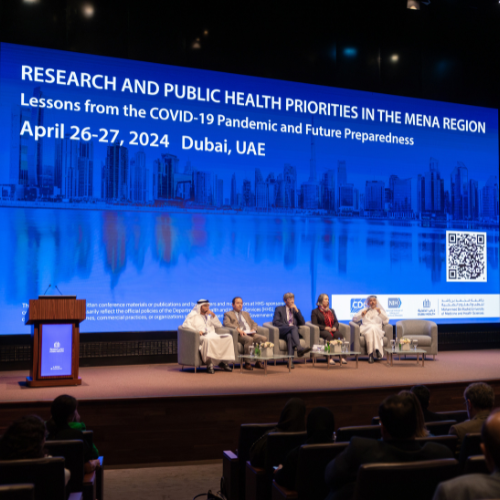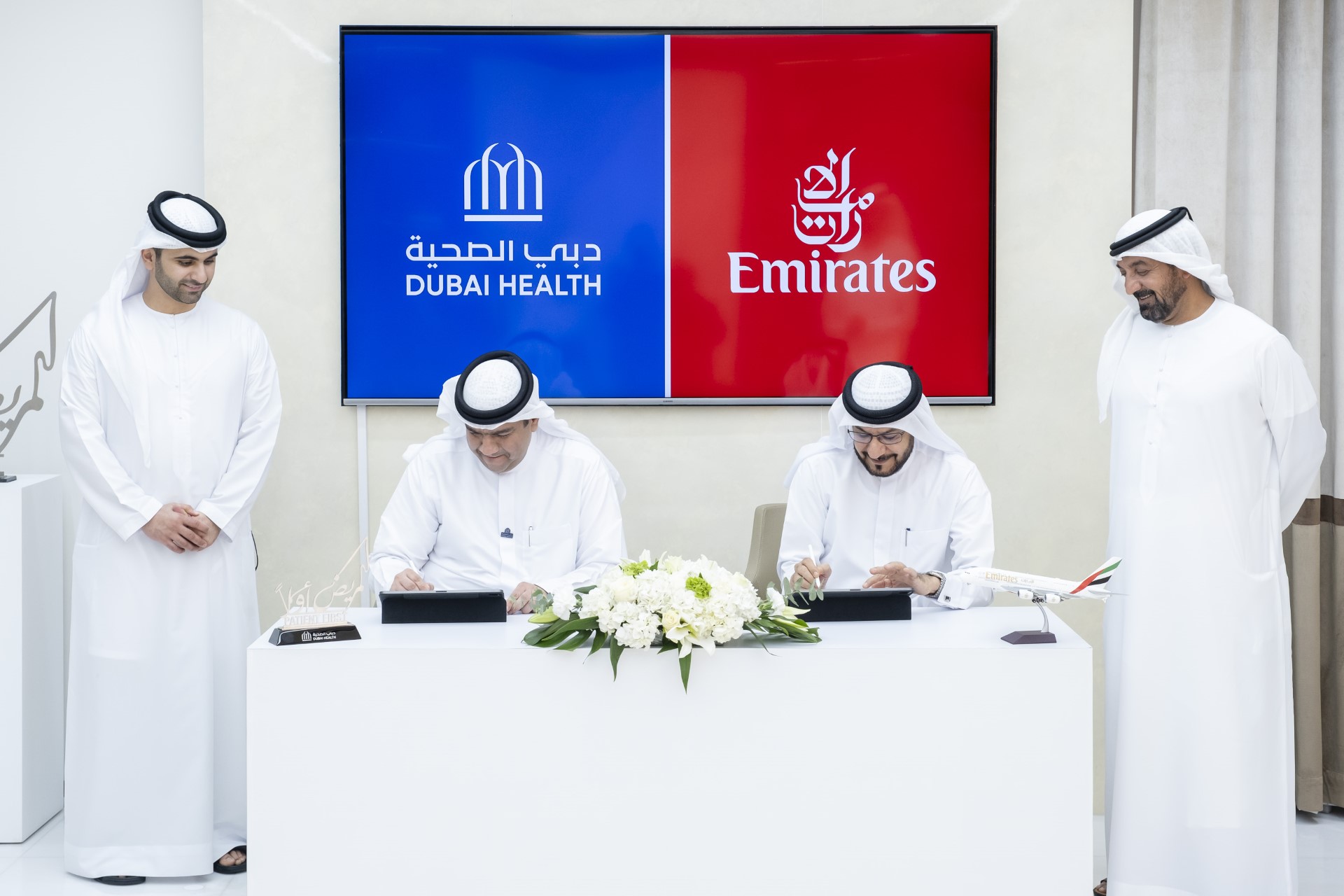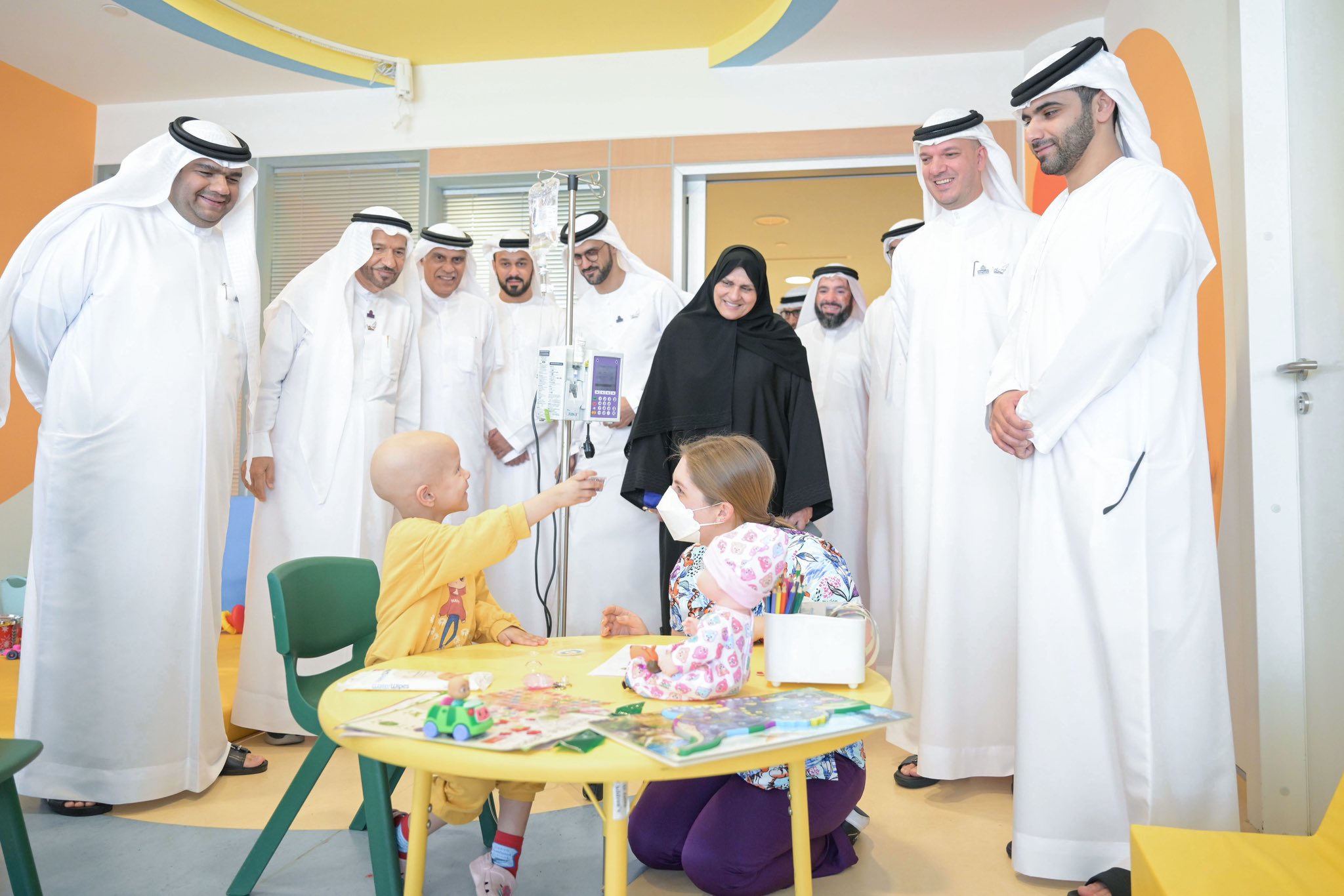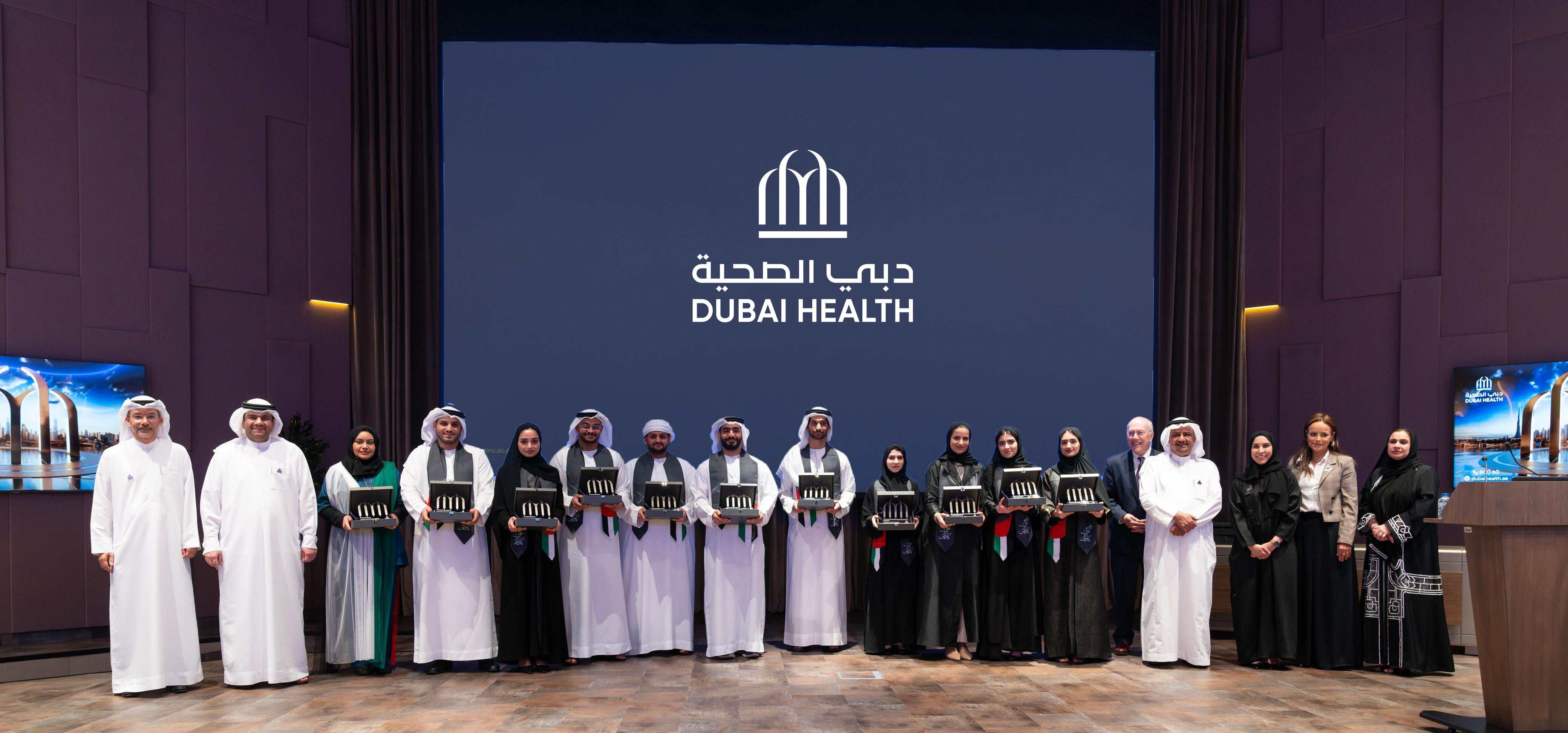CDC, NIH/NIAID and Mohammed Bin Rashid University of Medicine and Health Sciences Unite for Public Health Conference in Dubai

Mohammed Bin Rashid University of Medicine and Health Sciences (MBRU), which leads the Learning and Discovery missions of Dubai Health, the first integrated academic health system in Dubai, joined forces with the United States Centers for Disease Control and Prevention (CDC) and National Institute of Allergy and Infectious Diseases (NIAID), part of the U.S. National Institutes of Health (NIH) to host the joint conference: Research and Public Health Priorities in the MENA Region: Lessons from the COVID-19 Pandemic and Future Preparedness.
Held at MBRU, the event brought together regional experts and stakeholders from the Middle East and North Africa (MENA), alongside counterparts from the U.S. and other regions to exchange insights and foster collaboration in addressing pressing public health challenges.
The U.S. CDC established the MENA Regional Office in Muscat, Oman in 2020 to strengthen public health collaborations in the region and enhance global health security. In addition to the CDC personnel in Muscat, CDC will soon place a Regional Technical Advisor for Emerging Infections and Zoonotic Diseases in Abu Dhabi to support additional efforts in UAE and the region. This presence, along with the NIAID in the region, fosters scientific and public health collaborations with the U.S., and the MENA region, including sharing best practices and innovations, such as this conference.
The conference welcomed approximately 200 delegates, including academics, healthcare practitioners, and public health professionals from 16 countries, including an impressive lineup of nearly 40 speakers and chairs and 40 abstract presenters. Featuring sessions, panel discussions, and abstract presentations, conference topics ranged from reflections on the COVID-19 pandemic's impact and predictions for future outbreaks, to strategies for preparedness and response. The conference also afforded opportunities for networking and collaboration among the participants.
The conference also featured keynotes by notable figures, including Deputy Chief of Mission Eric Gaudiosi, of the U.S. Mission to the UAE; H.E. Dr. Amer Sharif, Chief Executive Officer of Dubai Health, and President of MBRU; H.E. Professor Alawi Alsheikh-Ali, Deputy CEO of MBRU; from the U.S. Centers for Disease Control and Prevention (CDC), Dr. Henry Walke, Director of the Office of Readiness and Response, Dr. Kayla Laserson, Director for the Global Health Center, Heather Burke, Regional Director, U.S. CDC Middle East/North Africa Regional Office in Muscat, Oman, ; and from NIAID, Dr. Daniel Douek, Senior Investigator and Chief of the Human Immunology Section at the Vaccine Research Center, and Dr. Mohamed H. Sayegh, Senior Scientific Advisor to the Director.
In his opening keynote address, H.E. Dr. Amer Sharif, Chief Executive Officer of Dubai Health and President of MBRU, highlighted Dubai's proactive response to the COVID-19 pandemic, drawing upon his role as Chair of the Dubai COVID-19 Command and Control Center. He emphasized the significance of collaboration and working together in a coordinated approach toward advancing healthcare solutions.
He said, “We are proud to host healthcare leaders from all around the region and the U.S. for the Research and Public Health Priorities in the MENA Region conference here in Dubai. A new frontier of opportunities has been created since the COVID-19 pandemic, and now, more than ever, we stand at the cusp of a transformative era, where not only do we reflect upon lessons learned but also to chart new territories in a conducive environment that nurtures collaboration across the entire region and beyond. As Dubai’s first integrated academic health system, we believe that through uniting efforts, we advance health and shape a brighter future for all.”
In his opening remarks, DCM Gaudiosi stated, “Supported by the U.S. COVID-19 response supplemental funding and facilitated by the support of the U.A.E government and the U.S. diplomatic missions in the region, our gathering today focuses on health security, preparedness, and response—a testament to our shared priorities and our collective will to invest in healthier futures.”
Indeed, many of the participants were on the front lines during the COVID-19 pandemic – from clinicians, incident managers, and leaders in local, national, and global response. It was evident the importance of partnership, sharing of accurate information, forecasting and analytics to inform decision making, and health communications in protecting health not just in emergencies, but also in mass migration events and outbreak response. The conference concluded with energized participants with new and strengthened relationships and ideas for collaboration to predict, prepare, and be ready to respond to the next health threat.


